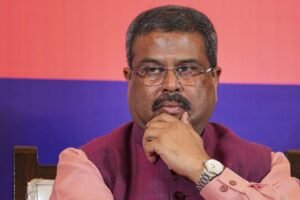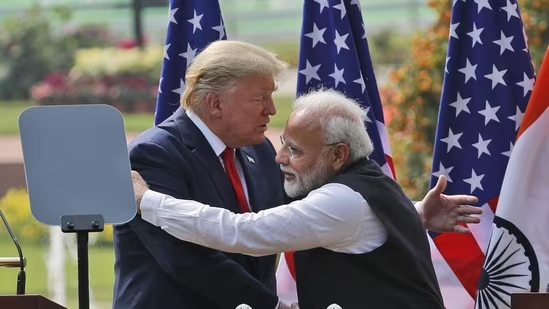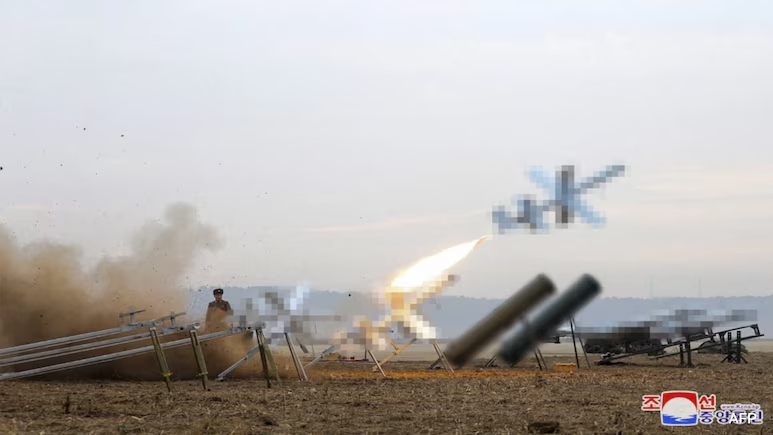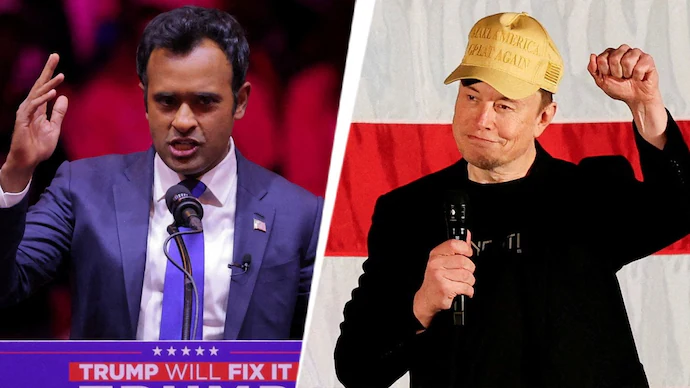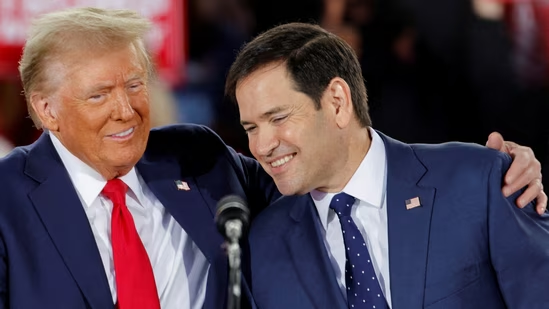Trump, despite his admiration for Prime Minister Modi and the strong relationship between the US and India, continues to uphold his ‘America First’ policy.
As Donald Trump’s re-election to the White House appears increasingly likely, attention is shifting towards the potential implications for the relationship between India and the United States. It is worth noting that Trump has consistently emphasized his commitment to prioritizing American interests with slogans like “Make America Great Again” and “America First”.
Trump, on numerous occasions, has shown deep appreciation for his “close ally” Prime Minister Narendra Modi.
In the midst of uncertainties surrounding the fate of the relationship between New Delhi and Washington, Prime Minister Narendra Modi expressed his congratulations to President Trump on his victory in the US presidential elections, referring to him as a “friend.
PM Modi expressed his anticipation for “enhancing our cooperation to bolster the India-US Comprehensive Global and Strategic Partnership,” emphasizing the joint efforts towards improving the lives of our citizens and fostering global peace, stability, and prosperity.
Trump made a significant gesture towards Hindu voters during the Diwali celebrations last week, where he emphasized his dedication to enhancing the ties between the United States and India. Through an extensive message shared on the microblogging platform X, Trump conveyed his deep respect for India and Prime Minister Modi.
Trump stated that his administration would defend Hindu Americans from the radical left’s anti-religious intentions, ensuring their freedom. He also emphasized bolstering the strong partnership with India and its Prime Minister Modi.
Trump and Prime Minister Modi have frequently showcased their camaraderie at prominent events such as the “Howdy, Modi!” gathering in Texas in 2019 and the “Namaste Trump” event in Ahmedabad in 2020.
While on his tour of Australia, Foreign Minister S Jaishankar commented on the recent US presidential elections, noting the tight race between Trump and Harris. He emphasized the continuous advancement of bilateral relations between India and the US across the past five presidential terms.
During a press conference, he expressed assurance that our bond with the US will continue to strengthen regardless of the outcome of the American election.
In 2017, Jaishankar also acknowledged the resurgence of the QUAD during the Trump administration. Despite the halt in physical meetings due to COVID, one of the few in-person gatherings of Foreign Ministers occurred within the QUAD in Tokyo in 2020. This particular event, I believe, holds significant implications.
Trade and economic ties
Given Trump’s strong position on trade strategies, the chances are high that a government under his leadership would emphasize policies beneficial to the US, which could lead to increased pressure on India to lower tariffs and adjust its export regulations.
In the previous month, Trump asserted that New Delhi enforces some of the most elevated tariffs on foreign goods and promised to implement a corresponding tax if he emerges victorious in the White House competition.
During his address to the Detroit Economic Club, Trump emphasized reciprocity as a crucial component of his strategy to revive America’s prosperity. He criticized India for imposing high tariffs, particularly highlighting the import duties on Harley Davidson motorcycles, a matter he had addressed earlier during his initial presidential tenure.
The individual, in contrast, tempered his remarks to commend PM Modi. Describing India as a prominent force, he underscored the strong bond between their nations. Specifically highlighting Modi’s leadership qualities, he lauded him as an exceptional and unifying figure who has excelled in his role.
The former US President noted that while they may charge more than China in various aspects, they do so with a friendly demeanor, describing it as a more pleasant transaction. He highlighted how they express gratitude for purchases made from India.
Bloomberg Economics forecasted that India’s economy might see a marginal impact from the proposed tariff increases by Donald Trump. They projected a slight 0.1% reduction in GDP by 2028 under the assumption that Trump enforces a 60% tariff on Chinese goods and a 20% tariff on other products.
The report implied that a decrease like this would stem from a broader global trade downturn and India’s comparative disadvantage.
Economists have proposed that New Delhi could counteract the impact of Trump’s trade barriers by boosting manufacturing subsidies and lowering overall import tariffs.
H-1B visa
For the Indian employees residing in the United States or those aspiring to relocate there, a significant issue revolves around the H1-B visa system. With the ongoing presidential election voting in the US indicating a potential return of Trump to the White House, speculation arises regarding the fate of the yearly quota of 85,000 H1-B visas under his leadership.
The H1-B visa is designed for US companies to recruit and engage foreign workers in specialized fields such as science, technology, engineering, mathematics (STEM), and IT. It enables IT firms to deploy their staff members to the United States.
There is a history of Trump voicing concerns about the H-1B visa program, labeling it as detrimental and unjust to American workers. Should he make a comeback to the White House, there is a possibility of significant reforms being implemented regarding the H-1B visas.
In 2020, the US labor department, under the presidential administration at the time, suggested a new regulation aiming to increase the minimum wage for H-1B visa holders to match that of regular US workers. Despite this initial proposal, the effort was ultimately thwarted. Additionally, speculations regarding potential limitations on legal immigration routes were highlighted in various reports by the US media.
Security and defense collaboration
It is probable that Donald Trump’s positions on China and counter-terrorism could resonate with India’s interests, potentially paving the way for enhanced defense collaboration between Washington and New Delhi.
During Trump’s time in office, the QUAD, comprising the United States, India, Japan, and Australia, was bolstered to mitigate China’s impact in the Indo-Pacific area.
Continuing the tradition, India and the US are set to persist with their military drills and collaboration, emphasizing their commitment to counterbalancing Chinese presence.
Trump, in his most recent Diwali message aimed at appealing to Hindu voters, has denounced the “assaults on minority groups” in Bangladesh. The country witnessed incidents of mob violence targeting Hindu and Christian minorities during a period of turmoil.
Trump declared that such a situation would never occur under his supervision, emphasizing Kamala and Joe’s disregard for Hindus globally and in the US. He restated his goals of reducing taxes, regulations, boosting American energy, and creating the strongest economy ever seen. Trump pledged to achieve these objectives once more, promising to elevate America to new heights with the slogan “Make America Great Again.


